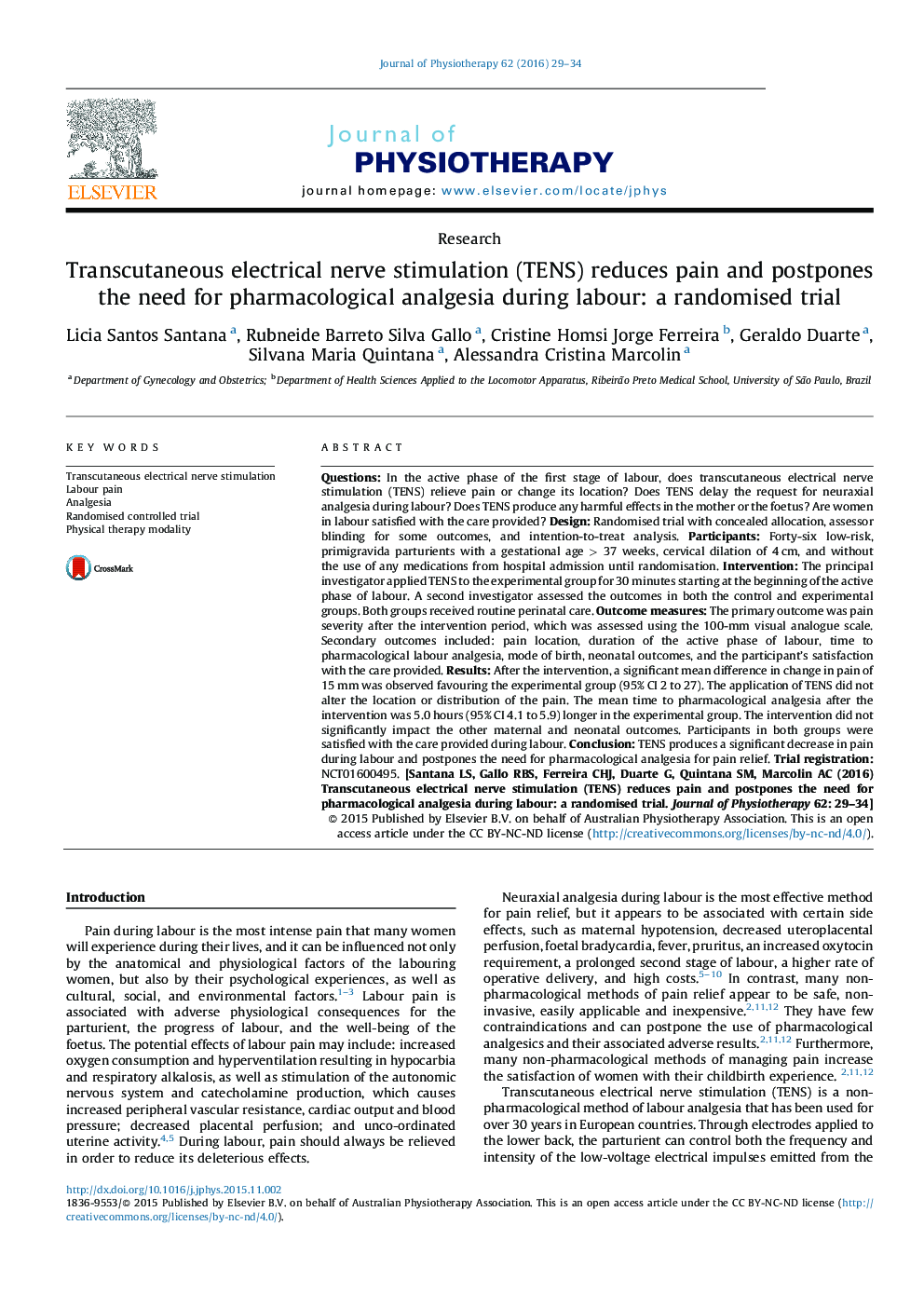| کد مقاله | کد نشریه | سال انتشار | مقاله انگلیسی | نسخه تمام متن |
|---|---|---|---|---|
| 2621975 | 1135796 | 2016 | 6 صفحه PDF | دانلود رایگان |
Questions: In the active phase of the first stage of labour, does transcutaneous electrical nerve stimulation (TENS) relieve pain or change its location? Does TENS delay the request for neuraxial analgesia during labour? Does TENS produce any harmful effects in the mother or the foetus? Are women in labour satisfied with the care provided? Design: Randomised trial with concealed allocation, assessor blinding for some outcomes, and intention-to-treat analysis. Participants: Forty-six low-risk, primigravida parturients with a gestational age > 37 weeks, cervical dilation of 4 cm, and without the use of any medications from hospital admission until randomisation. Intervention: The principal investigator applied TENS to the experimental group for 30 minutes starting at the beginning of the active phase of labour. A second investigator assessed the outcomes in both the control and experimental groups. Both groups received routine perinatal care. Outcome measures: The primary outcome was pain severity after the intervention period, which was assessed using the 100-mm visual analogue scale. Secondary outcomes included: pain location, duration of the active phase of labour, time to pharmacological labour analgesia, mode of birth, neonatal outcomes, and the participant's satisfaction with the care provided. Results: After the intervention, a significant mean difference in change in pain of 15 mm was observed favouring the experimental group (95% CI 2 to 27). The application of TENS did not alter the location or distribution of the pain. The mean time to pharmacological analgesia after the intervention was 5.0 hours (95% CI 4.1 to 5.9) longer in the experimental group. The intervention did not significantly impact the other maternal and neonatal outcomes. Participants in both groups were satisfied with the care provided during labour. Conclusion: TENS produces a significant decrease in pain during labour and postpones the need for pharmacological analgesia for pain relief. Trial registration: NCT01600495. [Santana LS, Gallo RBS, Ferreira CHJ, Duarte G, Quintana SM, Marcolin AC (2016) Transcutaneous electrical nerve stimulation (TENS) reduces pain and postpones the need for pharmacological analgesia during labour: a randomised trial.Journal of Physiotherapy62: 29–34]
Journal: Journal of Physiotherapy - Volume 62, Issue 1, January 2016, Pages 29–34
